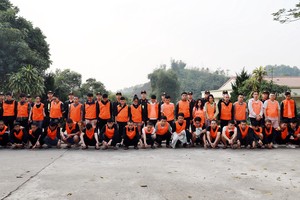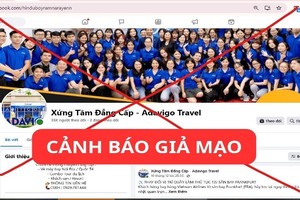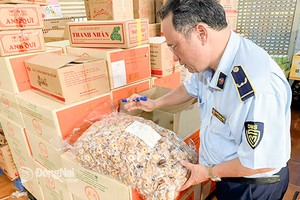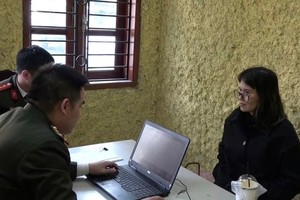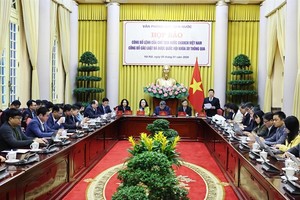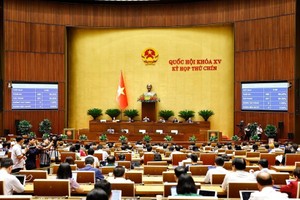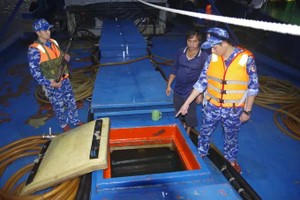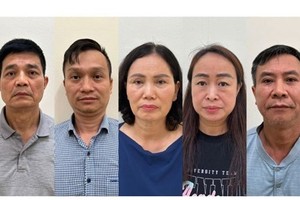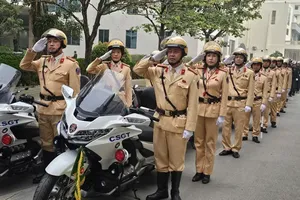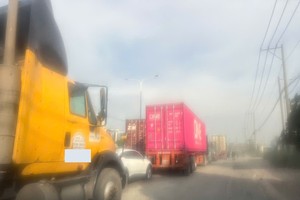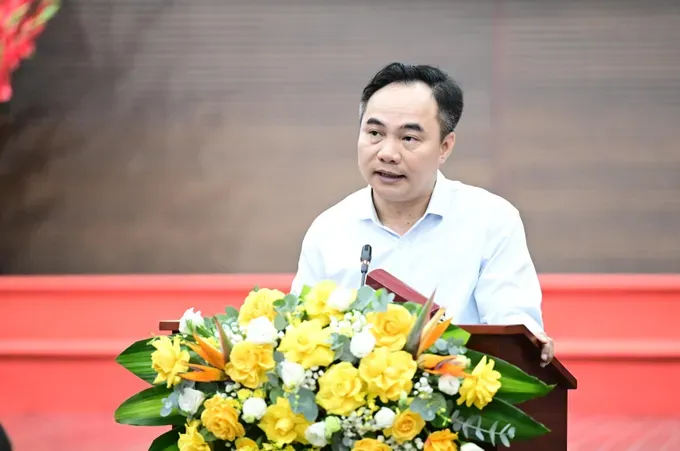
At a conference held this morning to meet and discuss with enterprises involved in sending Vietnamese workers abroad, Colonel Nguyen Huy Khich, Deputy Director of the Department of Internal Political Security under the Ministry of Public Security, revealed that numerous criminal cases related to labor export have been prosecuted, many involving large sums of unrecorded money.
During the dialogue with regulatory authorities and more than 100 labor export enterprises, Colonel Nguyen Huy Khich noted that Vietnam is currently in its golden population period, making labor export a matter of significant importance to both the nation and individual workers. According to him, most people seeking overseas employment belong to disadvantaged groups, and their efforts to improve their livelihoods while contributing to the national economy are legitimate. However, the excessively high costs they must pay remain a major concern.
Through investigations into several cases, the police discovered that some enterprises involved in sending workers abroad had concealed large amounts of money off the books. Although existing legal regulations in this field are relatively comprehensive, loopholes still exist.
Many enterprises, despite not being licensed for labor export, have engaged in various related activities, including sourcing recruits and falsifying official documents to promote their operations.
Colonel Nguyen Huy Khich also pointed out that violations of law by Vietnamese citizens abroad have become alarming, damaging the country’s reputation and affecting the image of reputable labor export companies.
According to Colonel Nguyen Huy Khich’s revelation, in recent years, the Ministry of Public Security has prosecuted numerous criminal cases and directed local police units to investigate many others related to labor export activities. The main charges include fraud, abuse of trust to appropriate property, illegal exit, human trafficking, organizing illegal departures, serious accounting violations, bribery, and falsification of official documents. He added that over the past two years, hundreds of criminal cases connected to labor export have been initiated.
The Department of Internal Political Security will put forth proposals to further complete the legal regulations in this sector, particularly to avoid sub-licenses and unnecessary procedures in labor export.
Colonel Nguyen Huy Khich also requested that businesses operating in this sector must comply with the law and engage in healthy competition, providing workers with accurate, transparent, and timely information.
At the conference, the Center for Overseas Labor, a non-profit organization, proposed that the Ministry of Home Affairs take the lead in developing a National Gateway for Overseas Employment. This portal would serve as the sole, official address, integrating information on all programs and markets, including non-profit schemes and licensed service enterprises' job orders and contracts. This will enable workers to perform reliable searches, reduce negative behavior, and create a direct connection channel.
Based on the National Public Service Portal, the Center for Overseas Labor requested that the Ministry of Home Affairs direct the Department of Overseas Labor Management to develop and announce sets of reference standards for each market and major industry. These standards would include the common age range, minimum requirements for qualifications/foreign languages, basic salary levels, and fundamental working conditions. This measure will help workers to self-assess, set their orientation, and have a basis for comparison and selection.

